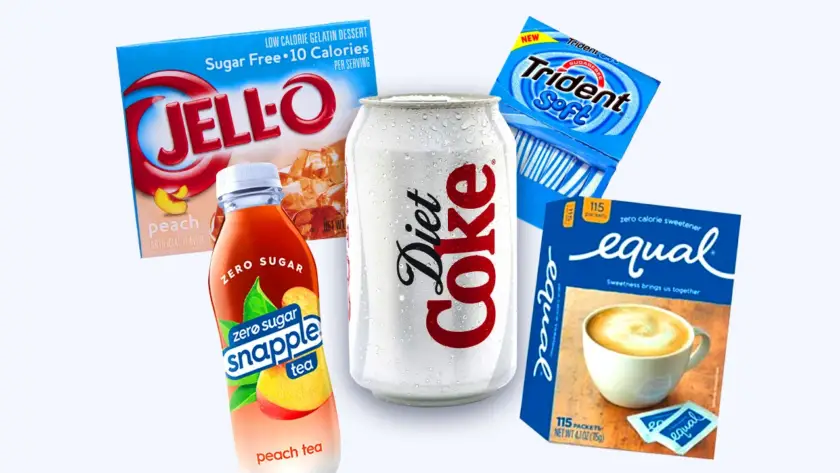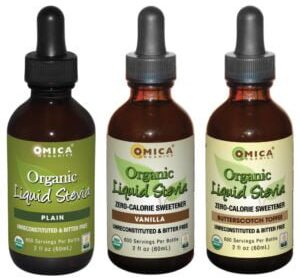In the quest for healthier alternatives to sugary beverages, the allure of diet sodas and sugar-free drinks that contain aspartame have captivated millions of individuals seeking to manage their weight and maintain a healthy lifestyle. These artificially sweetened beverages promised the taste of sweetness without the added calories, a seemingly perfect solution to appease both taste buds and waistlines.
However, beneath the facade of guilt-free indulgence lies a controversial ingredient that has sparked intense debate among health experts and researchers alike – aspartame.
Aspartame, a low-calorie artificial sweetener, has faced an onslaught of scrutiny over the years, with claims that it poses numerous health risks. Among the most concerning allegations is its potential impact on the human brain.
As a widely-used sugar substitute found in various products ranging from diet sodas to sugar-free gums, aspartame’s prevalence in the modern diet is undeniable. Yet, as more research comes to light, the question remains: Is the convenience of a calorie-free sweetener worth risking the health of our brain and body?
In this article, we delve into the scientific literature to uncover the potential effects of aspartame on the brain and its implications for human health. With mounting evidence linking this artificial sweetener to various neurological concerns, you may find yourself rethinking your beverage choices.
From cognitive function to mood regulation, the revelations about aspartame’s impact on the brain may leave you with a newfound awareness and motivation to opt for healthier alternatives. So, before you reach for that next sugar-free delight, read on to learn what aspartame does to your brain and why it might be time to bid farewell to diet sodas forever.
Aspartame Health Risks:
We are all well-aware of the health risks that are associated with sugar. It has been linked to a variety of problems such as obesity, heart disease, and tooth decay.
As a result of this, many of us have turned towards sugar alternatives in an attempt to satisfy our sweet tooth without destroying our body. However, there has not been as much of a focus on the health effects of these sugar alternatives as there is on sugar, specifically on one of the most popular sugar alternatives: aspartame.
Aspartame poisoning is a serious and common side effect of consuming this sugar alternative that many people do not know about. Aside from being reported to cause a variety of unpleasant and sometimes seriously dangerous side effects in regular, healthy people, aspartame has also been proven to be poisonous to those born with the condition phenylketonuria.
Aspartame and Phenylketonuria:
Phenylketonuria is a condition that people are born with that makes them unable to properly digest an amino acid called phenylalanine. This amino acid also happens to be one of the main components of aspartame, making it incredibly dangerous for individuals with this condition to consume it.
If individuals with phenylketonuria are exposed to high levels of phenylalanine than they can experience a variety of dangerous side effects including:
- Seizures
- Delayed development
- Behavioral problems
- Psychiatric problems
- Musty odor
- Skin disorders (such as eczema)
Although all of these side effects are very serious and can be incredibly harmful, even deadly at times, the worst side effect caused by phenylalanine is permanent intellectual disability.
If young children or babies diagnosed with phenylketonuria are exposed to high levels of phenylalanine, it can have permanent effects on their brain as it is still developing, making it very important for young children to avoid any products containing aspartame.

Common Aspartame Side Effects:
Although aspartame can be deadly for people diagnosed with phenylketonuria, it can also be very harmful for the average, relatively healthy person. One report filed by the Aspartame Toxicity Information Center found that a large percentage of people who ingested aspartame experienced a variety of different side effects.
It is reported that, after ingesting aspartame:
- 45% of test participants experienced headaches
- 39% experienced dizziness, unsteadiness, or both
- 29% experienced confusion or memory loss
- 25% experienced vision problems such as blurriness, bright flashes, and tunnel vision
- 25% experienced severe depression
- 23% experienced extreme irritability
- 19% experienced severe anxiety attacks
- 15% experienced convulsions (seizures)
- 14% experienced severe insomnia
These are only the most prevalent side effects associated with consuming aspartame; other slightly less common effects included the development of hives, symptoms of tinnitus such as ringing of the ears, joint pain, and severe allergies.
It is especially concerning that such a large number of these test participants experienced psychiatric problems such as symptoms of depression, irritability, anxiety, and insomnia. This suggests that aspartame has negative effects on the nervous system and brain that many are unaware of, meaning consuming aspartame does not only affect your physical health but your mental health as well.
Healthy Sweeteners:
Just because aspartame is bad for you doesn’t mean there aren’t plenty of healthy sweeteners out there. In fact, many of these natural sweeteners can actually provide you with health benefits.
Here are some of the best ones available:
- Stevia: This is probably the second most popular sugar-alternative sweetener, right behind aspartame. It’s low in calories and is used for both sweetening and medicinal purposes. Its incredibly low calorie content, combined with the fact that it is a lot sweeter than typical sugar, means that it adds very little to your overall calorie intake. Consuming stevia has also been associated with several health benefits, including the ability to lower blood pressure in people with high blood pressure and its potential to lower blood sugar levels. In several animal studies, it has also been shown to reduce plaque build-up in the arteries.
Click Here To Check Out Omica Organics Stevia
Use the discount code: VFDF7M For 10% off your order.
Aspartame can be found in many products that claim to be sugar-free, including most products from NutraSweet. Always make sure to check the label to ensure the sugar-free product you’re about to eat is aspartame-free as well.
In conclusion, while the appeal of aspartame as a low-calorie sweetener has garnered widespread usage, its potential effects on the brain and overall health warrant a reevaluation of our beverage and food choices. With healthier and more natural sweeteners available, the decision to steer clear of aspartame may not only protect our physical health but also contribute to overall well-being and peace of mind.
By understanding the risks associated with aspartame and exploring better alternatives, we can empower ourselves to make informed decisions and embrace a healthier, more balanced lifestyle.





